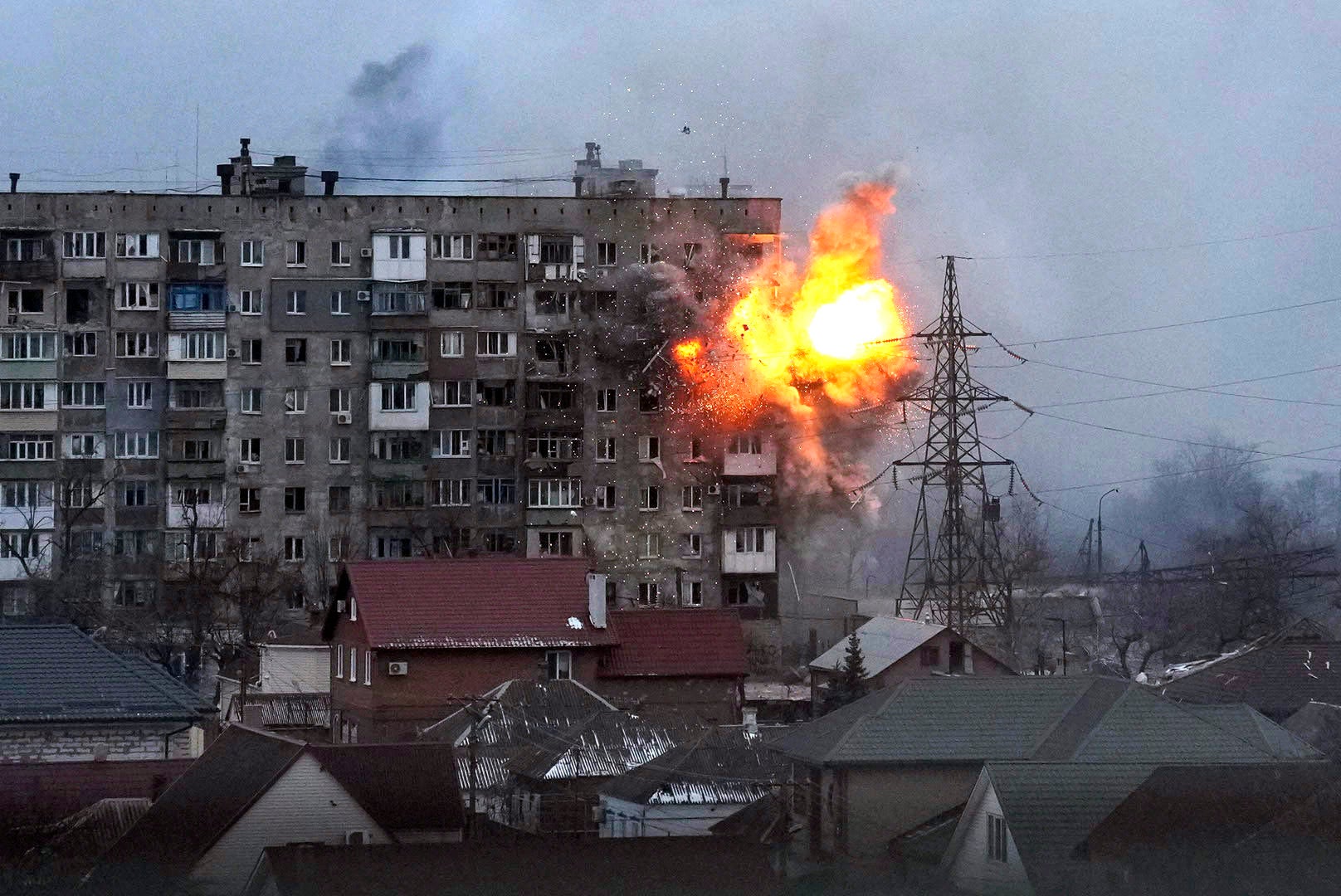History tells us western ‘red lines’ over chemical weapons are anything but
Barack Obama tried to draw a line in regards to Syria in 2013 – it was a sad, seminal episode, argues Sean O’Grady


The strategic experts who understand such matters say that the best way to predict what weapons the Russians are about to use is to see what they are accusing their enemies of doing. This is the Russian “playbook” that is being referred to in the west, and the source of their fear that the Russians are about to unleash chemical or similar banned unconventional weapons on troops or civilians in Ukraine.
It is certainly true that the Russians have been claiming openly that the Ukrainians or the Americans have been developing and/or storing chemical or biological weapons such as nerve agents. That claim – dismissed by the western and Ukrainian authorities – would service as both justification for the use of such weapons in retaliation and supposed defence (a spurious justification in any case); and to explain the presence of such materials in an area.
Observers also point to the use of chemical weapons over recent times blamed on Russia, or those connected to it. Novichok, for example, has been deployed against the Skripals on British soil and against the Russian opposition leader Alexei Navalny, among others. The Kremlin has always issued denials of any involvement. As a weapon of war it is believed to have been used by the regime of Bashar al-Assad in Syria – who the Russians were allied with. Numerous attacks were assessed to have been carried out between 2012 and 2019, with minimal or no western response beyond sanctions and the occasional airstrike on Syrian government forces (and carefully planned to avoid Russian casualties).
In Ukraine, Nato and others have made clear that the Russians have already used cluster bombs, outlawed by most countries, bombed hospitals and shelled nuclear power installations – suggesting a certain lack of scruple and desperation in their effort to break formidable Ukrainian resistance. None of these have been met with much more than words, some extra shipments of defensive weapons to Ukraine (eg anti-tank guns), and another round of sanctions. The west seems more united these days – but its long-term weakness of will continues.
Indeed it was the failure of President Obama to do much to penalise the Syrians and Russians after he declared his “red line” was chemical warfare that – it could be argued – emboldened Vladimir Putin in his threats to use such weapons.
It was a sad, seminal episode. In August 2013 the west rounded on the Syrian regime for a chemical attack near Damascus, that the US has said killed around 1,400 people, including 426 children. In response, a coalition of the US, the UK and France pledged to launch airstrikes on Syria. But the House of Commons refused to support David Cameron and the strikes, with Labour opposition the key obstacle. Worried about alienating Congress, President Obama also backed down, and then so did Francois Hollande, then French president. Mr Hollande, a socialist, described it as “a missed opportunity that could have changed the course of the war”. Mr Putin has learned, so the argument runs, that he, especially as a nuclear power, can use chemical weapons with impunity, and indeed that he can intervene and annex territory around his neighbours (Crimea) with similar lack of serious punishment.
Chemical warfare – and even its possibility – is also highly effective at demoralising and terrorising populations. It is not clear whether the Ukrainians have much access to gas masks. Mr Putin might be deterred from the use of such weaponry if Nato threatened to take direct action to defend human life in Ukraine; but western statements on the issue have been at best equivocal. Boris Johnson, in his latest interview with Beth Rigby on Sky News, left no doubt in anyone’s mind, including those in the Kremlin, that the worst Russia would experience in return was “economic war”. The prime minister said: “We shouldn’t exclude anything. He should be kept in doubt about our intentions”.
But not that much doubt: “I would suggest the EU immediately stop all purchase of oil and gas from Russia. I think we should follow the developments very closely and if Russia continues to target civilians as we have seen, I would consider that crossing a red line.”
When asked about whether this would lead to military action, he said: “Of course we have to think this through very thoroughly because a no-fly zone might make more harm than good by expanding beyond Ukraine’s borders. My preferred option would be to declare an outright economic war against Russia. We can handle it economically – it will be tough – but that price would be very low and a tiny price compared to the loss of freedom if we do not act now.”
There may well be Obamaesque red lines laid down by the west in coming days, but they will really look more like green lights. The Nato threats will be political and economic, which will take time to bite in Russia. By then it may be too late.


